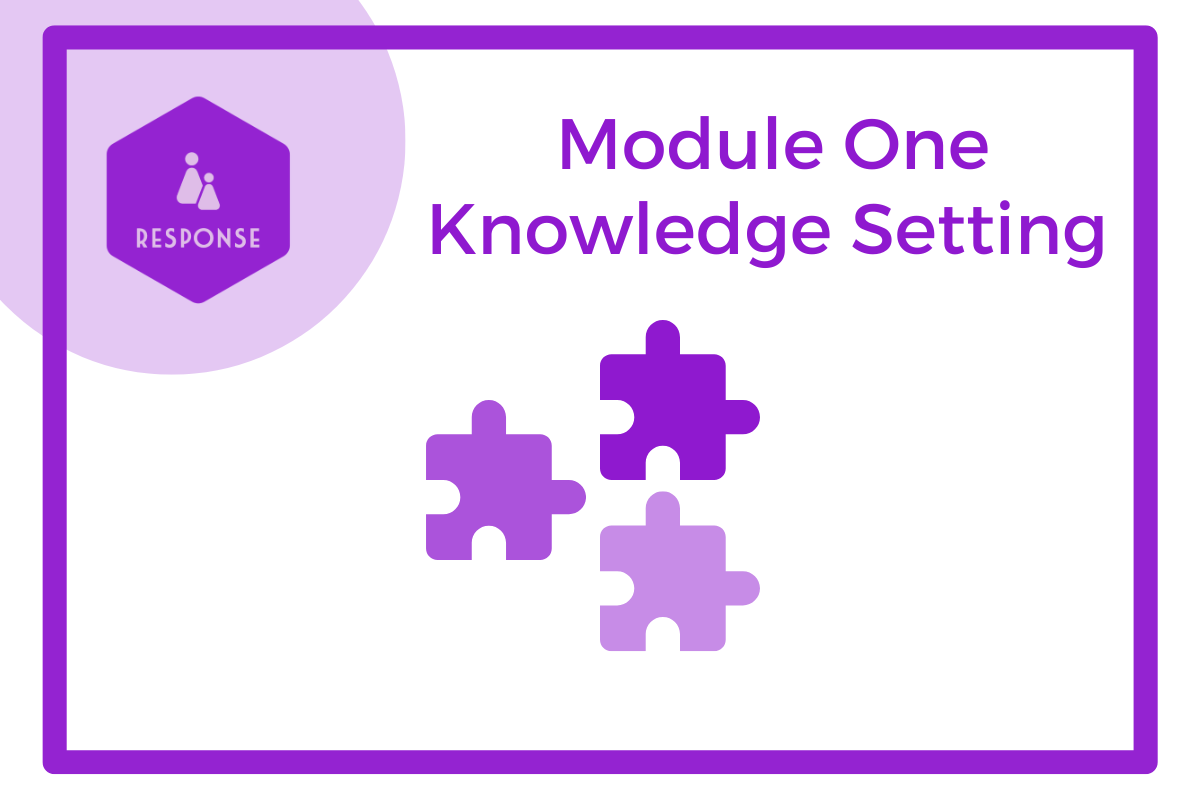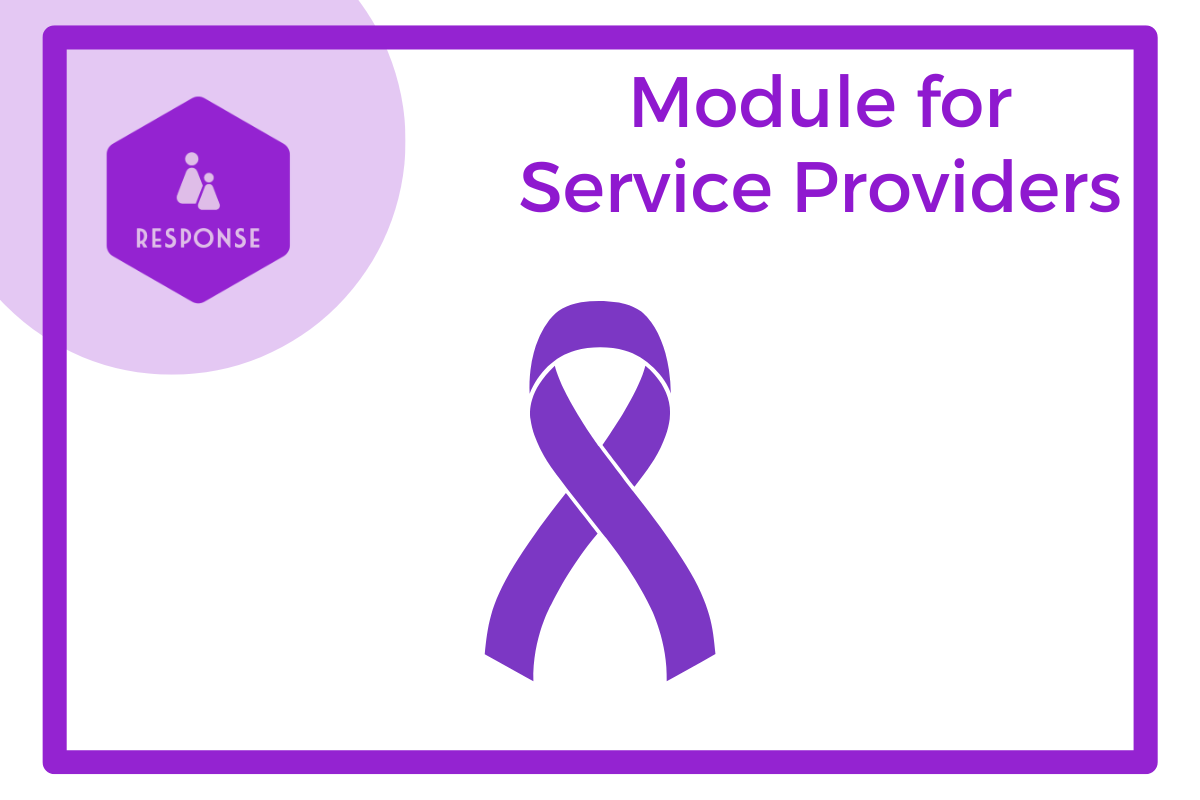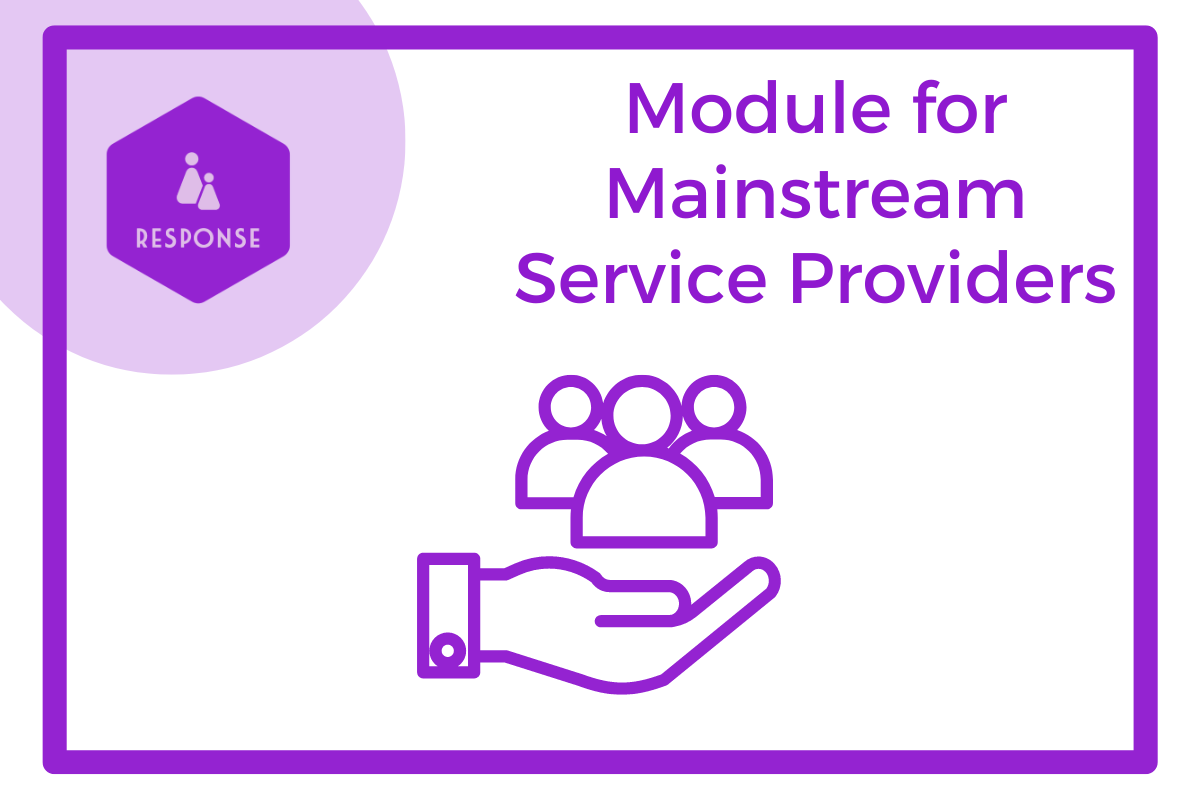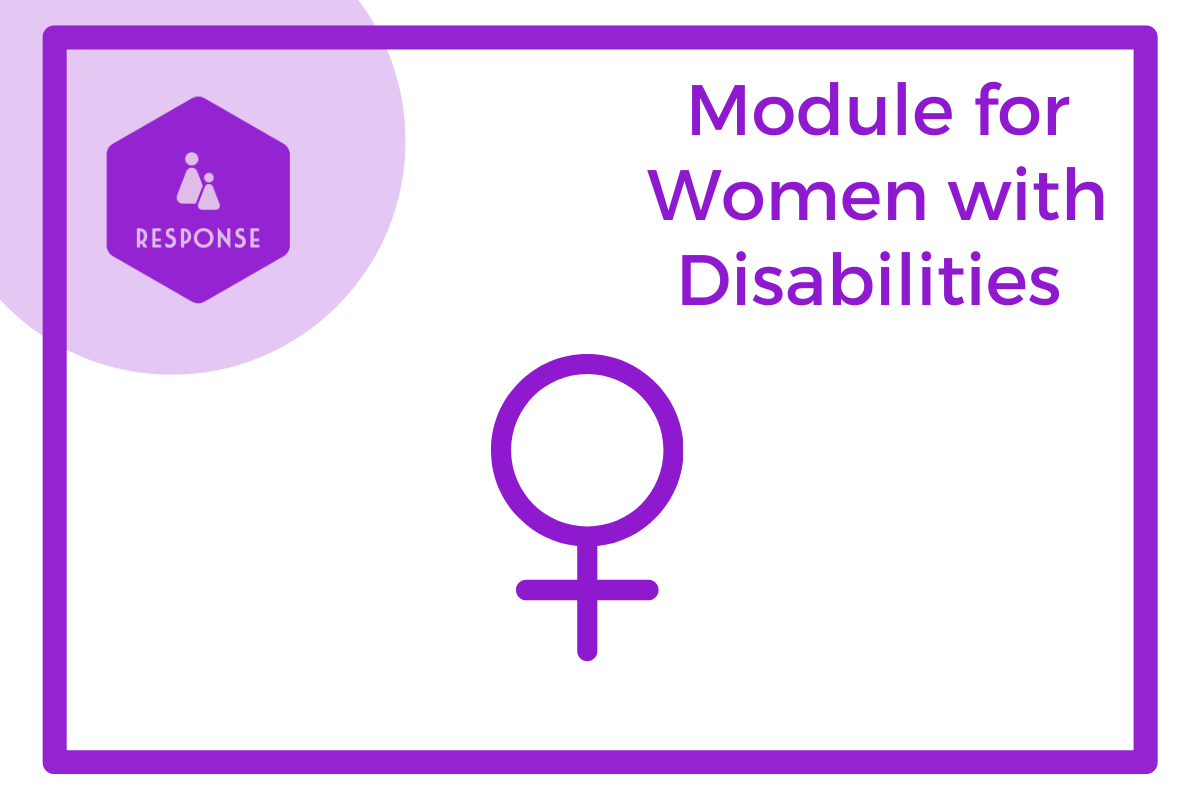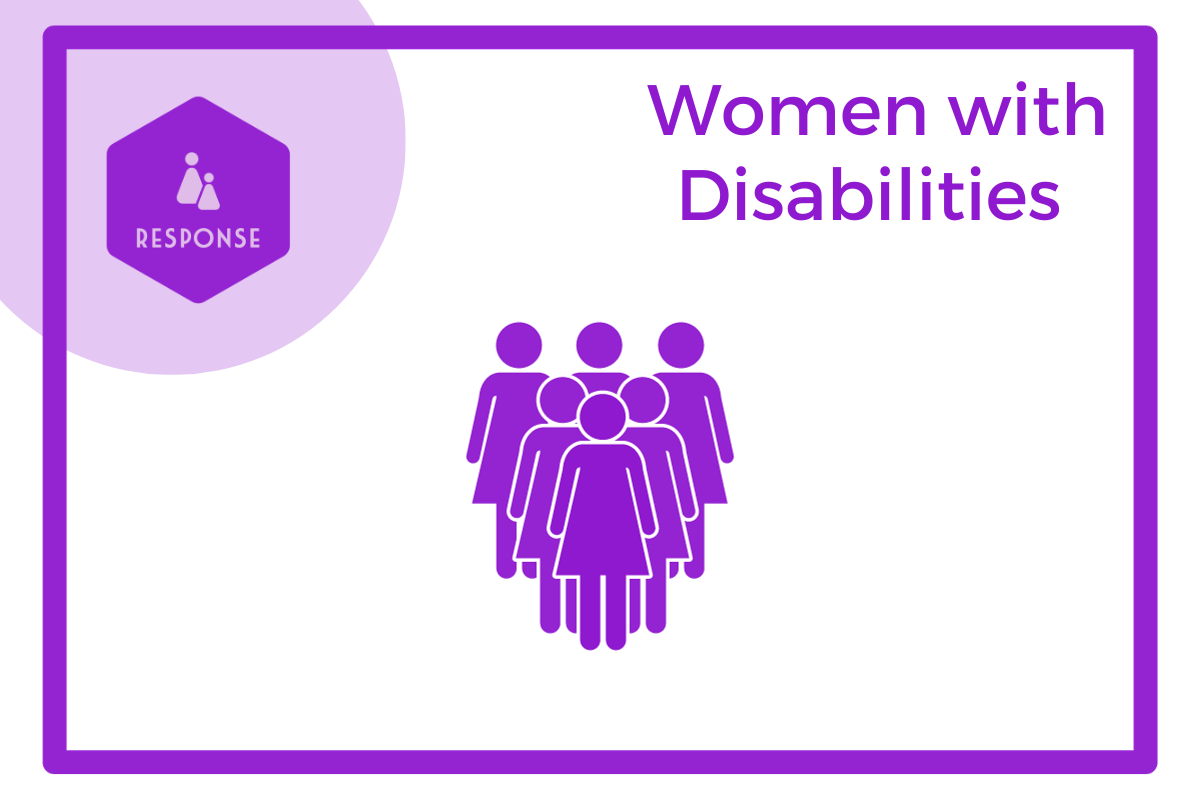RESPONSE - Responsive Services to Address Gender-Based Violence against Women With Disabilities
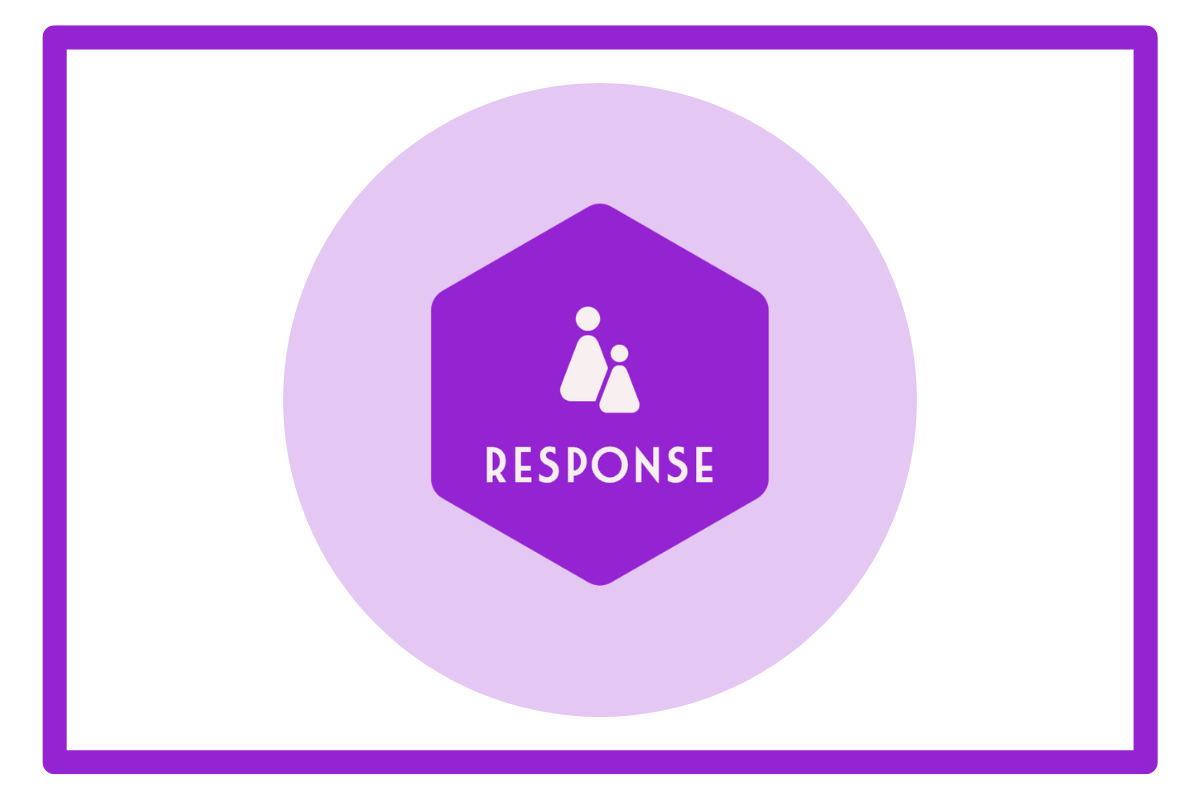
The content of this MOOC is based on the results of SOTA REPORT and the Training and Awareness Raising (TAR) Manual. Through this MOOC it is intended to provide learning objectives, content and activities for the different target groups to work together in developing gender-sensitive services to address gender-based violence. This will help to implement concrete measures in real situations, contributing to an inclusive approach to services that allows for universal design, ensuring accessibility for all women victims, regardless of their support needs.
Like all the Response project's actions, the MOOC is influenced by the intersectional approach to services and by the need to improve the skills and resources of professionals working in this field in order to address their lack of skills and ensure more inclusive and quality services, with the peculiarity that it proposes to all these actors to collaboratively build the skills, training and awareness necessary to achieve a truly effective, coordinated and multidisciplinary response.
The content of the MOOC addresses three different target groups. They are as follows:
Women with Disabilties (WWD): women over the age of 18, “who have long-term physical, mental, intellectual or sensory impairments which in interaction with various barriers may hinder their full and effective participation in society on an equal basis with others” (Article 1, UNCRPD).
Service Providers (SP): service providers from the disability field, this is NGOs, social workers, support services, social care professionals.
Mainstream Service Providers: all service providers, mainly from health, social care, and judicial sectors, that can encounter women with disabilities victims of crime. This is anti-discrimination/gender equality/healthcare professionals, judicial staff, victim support services.
These three groups are included because different points of view will contribute more and better to the prevention of violence against women and to the collaborative construction of the services they need. Given these three target groups, the MOOC offers two modules with common contents and two specific modules, one for professionals working in the disability field, and one for professionals working in mainstream services. In these modules, different training proposals will be collected to obtain key learning outcomes both for awareness raising and for collaborative construction, i.e., that the different target groups can work together in the development of gender and disability sensitive gender-based violence services.
Therefore, the module for service providers contains tools and information on how to identify cases of violence. Also speaks about the risk or vulnerability factors that can influence or be the cause of GBV against WWD, and ends by addressing how to empower women with disabilities.
The specific module for mainstream service providers includes tools on how to support women with disabilities in an appropriate and non-stereotypical way, when a service is inclusive, what are the key policies and strategies that need to be developed to provide inclusive services and how to put in place a tool to prevent gender-based violence against women with disabilities. It also offers an approach to the concept of the facilitator, what the role is about, and the importance of having trusted professionals to help inform and anticipate any problems or situations that may arise.
Finally, the module focussing on women with disabilities aims to address the importance of involving women with disabilities in combatting gender-based violence, of knowing and standing up for their rights, how the national justice system and victim support services work, and information on supported decision making and peer support to empower women with disabilities.
Through this MOOC, we want to achieve the following impacts:
- In the short term, to promote a learning model that generates new experiences and knowledge for both service providers (SPs) and mainstream service providers (MSPs) on how to develop gender-sensitive services to address gender-based violence, and for women with disabilities on how to truly participate in such a process.
- In the medium term, to achieve better stakeholder cooperation.
- In the long term, to ensure better integration and coordination of services, which will therefore be more sustainable and accessible, contributing to a better quality of life for women with disabilities and their circle of support.
A key component in the prevention of violence against women will be the new approach to accessible services for disabled women who are victims of gender-based violence, which is based on an intersectional and gender-sensitive perspective and improved and proper training of all the actors involved.
This Massive Open Online Course (MOOC) constitutes one of the
deliverables of the European project RESPONSE funded by the Erasmus+ programme
"Partnership for Cooperation in the field of Education and Training"
(ERASMUS-EDU-2021-PCOOP-ENGO).

